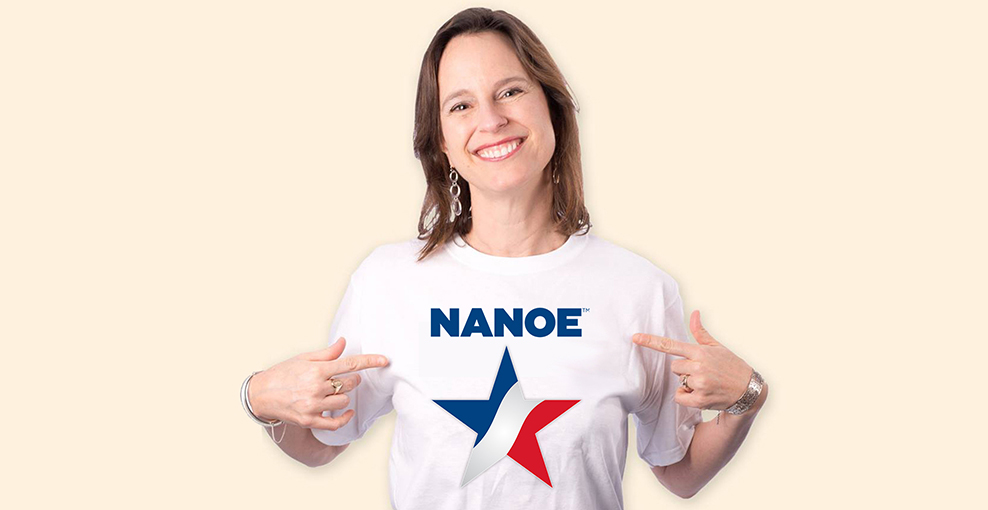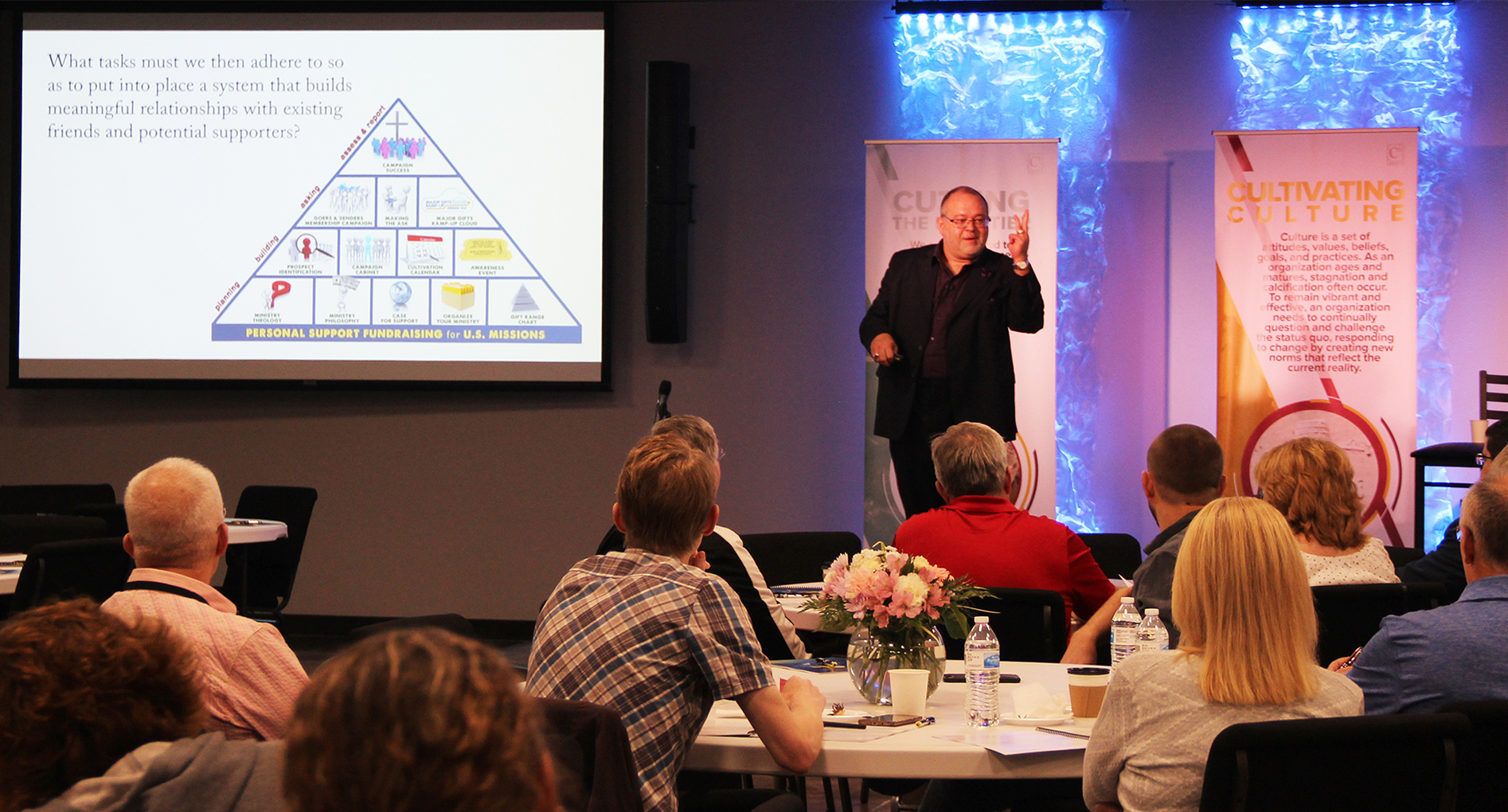Why Nonprofit Stories Are the Secret to Success
July 4, 2018
Nonprofit Credentials That Makes Sense
July 4, 2018Jimmy LaRose says, “Money Is Oxygen”


Jimmy LaRose (pictured above) is causing controversy throughout the charitable sector with his message “Money Is Oxygen.” LaRose, celebrating his thirtieth year of service, is convinced, now more than ever, that prioritizing revenue generation is the key to nonprofit (and ministry) success. Last week I interviewed Jimmy in his home in Lexington, SC to see what the fuss was all about. The “back and forth” with this animated fifty-year old was both enlightening and not for the faint-of-heart. Here’s what we discussed:
Jimmy, what is “charity’s purpose?”
LaRose – “Fundamentally, a charity is a corporation whose purpose is to make money…just like any other business. The only difference between a “for-profit” and a “non-profit” is simple. Revenues generated in a “for-profit” go to owners. Revenues generated by “non-profits” go to the community.”
Sum up for our readers charity’s biggest problem.
LaRose – “Simply put, charities are led by unqualified administrators and volunteer boards with no knowledge of the business principles that could actually achieve their purpose.”
What makes you think the sector is broken?
LaRose – “Next year the charitable sector will oversee $1.65 TRILLION DOLLARS (totaling $33 TRILLION DOLLARS over the next two decades.) You’d think you could do something big with that kind of money, wouldn’t you? You’d be wrong. The nonprofit sector is led by well-meaning individuals who, each day, collectively mismanage billions of dollars. Last year, nonprofits generated $1.65 trillion, and spent $1.57 trillion in what is arguably a failed attempt to affect global change. Furthermore, the nonprofit sector is our nation’s third-largest industry (retail trade and manufacturing being first and second) and employs 10 million people who lack the requisite skills required to defeat problems of scale. Furthermore, despite the huge increase in the number of charities and the many dedicated movements to encourage greater giving, sector growth remains in decline.”
Why is LaRose all about money?
LaRose – “Mankind has been ‘building-capacity’ since the beginning of time. In its original form humans gathered geographically as people-groups to invade and plunder one another’s resources. ‘Tribes’ evolved into nation-states who continued the same practice. Nation-states became countries and after the European Wars ‘colonization’ became the preferred method (occupying undeveloped countries while using knowledge and technology to grow indigenous crops and commandeer minerals.) THEN ADAM SMITH CAME ALONG. In 1776, Adam Smith, wrote The Wealth of Nations and established a financial framework that allowed groups to build-capacity through “trade” instead of “invasion.” Smith’s proposal became known as “Free Market Economics.” Back to your question “why are we so insistent on putting money first?” Because we now have 250 years of history contrasting the success of capitalism with the failures of communism, fascism, socialism and tyranny. Simply put, charities use money to ensure that other people experience life worth living. If you don’t prioritize the making of money OVER program you don’t have the resources to achieve significant impact. As King Solomon wisely said, ‘money is the answer to everything.’“
Why do you mean when you say, “Money is Oxygen?”
LaRose – “The old adage, there are things in life that are more important than money, is about as silly as saying there are things in life that are more important than air. Money, like air, in and of itself is not very impressive, nor does it give life meaning. However, life has very little meaning…if you can’t breathe! Money is oxygen. Without it, charities asphyxiate, atrophy and fail. I’m making sure nonprofits have the air they need.”
Charitable giving is at an all-time high. What’s your problem?
LaRose – “Powered by a booming stock market and a strong economy, charitable giving by American individuals, bequests, foundations and corporations to U.S. charities surged to $410.02 billion in 2017. However, you don’t get any points for raising $410 billion in 2017 when need $3 trillion a year to get the job done. Especially when the $3 trillion dollars is there for the taking.”
Are ethics, rules & regulations important?
LaRose – “Of course ethics, rules & regulations are important. But if you don’t have any money how important are they? Ethics, rules & regulations don’t raise money. In contrast, consultants, national nonprofit associations and state associations keep selling charities lists of rules instead of teaching them how to grow their enterprise. The cornerstone of nonprofit management IS NOT ETHICS. The cornerstone of nonprofit management is the application of FREE MARKET ECONOMICS that can then be protected by ethics and best practices.”
What about the push back?
LaRose – “First, there’s no push back from the thousands of industry leaders who actually know us, read our research and have achieved our credentials. They know the sector’s broken. If you’re talking about the ‘bought-and-paid-for’ journalists, for-profit consultants and failing competitors (whose heads explode every time we publish) we don’t care about their opinions.”
In closing, what distinguishes you from other leaders?
LaRose:“It’s a contrast in values. We’re about growth. They’re about rules. We’re about scale. They’re about regulations. If you’re stealing from your donors get your CFRE (Certified Fund Raising Executive) they’ll teach you how to stop embezzling. If you’re unkind to others and don’t respect your fellow man join Association of Fundraising Professionals (AFP) they’ll train you to be diverse. If you’ve bought into the hoax that you need better board members join your State Association they’ve got a webinar for you that hasn’t worked in decades. But if you need money…if you really need to increase your financial capacity…join us. The funding our members receive will take your breath away.”
—END—
Author: Kathleen Robinson
During her fifty-year career, Dr. Robinson worked in community and regional support systems development for at-risk families, children and youth organizations, community-based literacy systems, holistic family centers and nonprofit human services organizations. In addition, her focus has been on systems-based approaches to community planning and policy development, and social impact assessments of various community change projects. Her expertise is rural, integrated community development. Dr. Robinson previously served as Director of the Center on Neighborhood Development and the Director of the Center on Nonprofit Leadership within the Institute on Families and Neighborhood Life at Clemson University (1998-2009). She also co-lead in the development of the Institute’s PHD program in International Family and Community Studies.
The post Jimmy LaRose says, “Money Is Oxygen” appeared first on 501c3.buzz.



